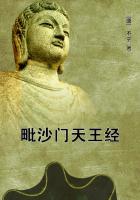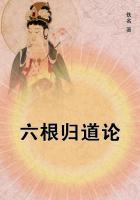Judge Story's conclusion is not better sustained by the nature and extent of the powers exercised by the revolutionary government.It has already been stated,that no original powers of legislation were granted to the Congresses of 1774and 1775;and it is only from their acts that we can determine what powers they actually exercised.The circumstances under which they were called into existence precluded the possibility of any precise limitations of their powers,even if it had been designed to clothe them with the functions of government.The colonies were suffering under common oppressions,and were threatened with common dangers,from the mother country.The great object which they had in view was to produce that concert of action among themselves which would best enable them to resist their common enemy,and best secure the safety and liberties of all.Great confidence must necessarily be reposed in public rulers under circumstances of this sort.We may well suppose,therefore,that the revolutionary government exercised every power which appeared to be necessary for the successful prosecution of the great contest in which they were engaged;and we may,with equal propriety,suppose that neither the people nor the colonial governments felt any disposition to scrutinize very narrowly any measure which promised protection and safety to themselves.They knew that the government was temporary only;that it was permitted only for a particular and temporary object,and that they could at any time recall any and every power which it had assumed.It would be a violent and forced inference,from the powers of such an agency,(for was not a government,although I have sometimes,for convenience,called it so),however great they might be,to say that the people,or States,which established it,meant thereby to me their distinctive character,to merge their distinctive character,to surrender all the rights and privileges which belonged to them as separate communities,and to consolidate themselves into one nation.
In point of fact,however,there was nothing in the powers,exercised by the revolutionary government,so far as they can be known from their acts,inconsistent with the perfect sovereignty and independence of the States.These were always admitted in terms,and were never denied in practice.
So far as external relations were concerned,Congress seems to have exercised every power of a supreme government.They assumed the right to "declare war and to make peace;to authorize captures;to institute appellate prize courts;to direct and control all national military and naval operations;
to form alliances and make treaties;to contract debts and issue bills of credit on national account."These powers were not "exclusive,"however,as our author supposes.On the contrary,troops were raised,vessels of war were commissioned,and various military operations were conducted by the colonies,on their own separate means and authority.Ticonderoga was taken by the troops of Connecticut before the Declaration of Independence;
Massachusetts and Connecticut fitted out armed vessels to cruise against those of England,in October,1775;South Carolina soon followed their example.In 1776,New Hampshire authorized her executive to issue letters of marque and reprisal.
These instances are selected out of many,as sufficient to show that in the conduct of the war Congress possessed no "exclusive"power,and the colonies (or States)retained,and actually asserted,their own sovereign right and power as to that matter.And not as to that matter alone,for New Hampshire established post offices.The words of our author may,indeed,import that the power of Congress over the subject of war was "exclusive"
only as to such military and naval operations as he considers national,that is,such as were undertaken by the joint power of all the colonies;
and,if so,he is correct.But the comma after the word "national "suggests a different interpretation.At all events,the facts which I have mentioned prove that Congress exercised no power which was considered as abridging the absolute sovereignty and independence of the States.
Many of those powers which,for greater convenience,were entrusted exclusively to Congress,could not be effectually exerted except by the aid of the State authorities.The troops required by Congress were raised by the States,and the commissions of their officers were countersigned by the Governors of the States.Congress were allowed to issue bills of credit,but they could not make them a legal tender,nor punish the counterfeiter of them.Neither could they bind the States to redeem them,nor raise by their own authority the necessary funds for the purpose.Congress received ambassadors and other public ministers,yet they had no power to extend to them that protection which they receive from the government of every foreign nation.A man by the name of De Longchamps entered the house of the French Minister Plenipotentiary in Philadelphia,and there threatened violence to the person of Francis Barbe Marboise,Secretary of the French Legation,Consul General of France,and Consul for the State of Pennsylvania;
he afterwards assaulted and beat him in the public street.For this offence,he was indicted and tried in the Court of Oyer and Terminer of Philadelphia,and punished under its sentence.The case turned chiefly upon the law of nations,with reference to the protection which it affords to foreign ministers.















